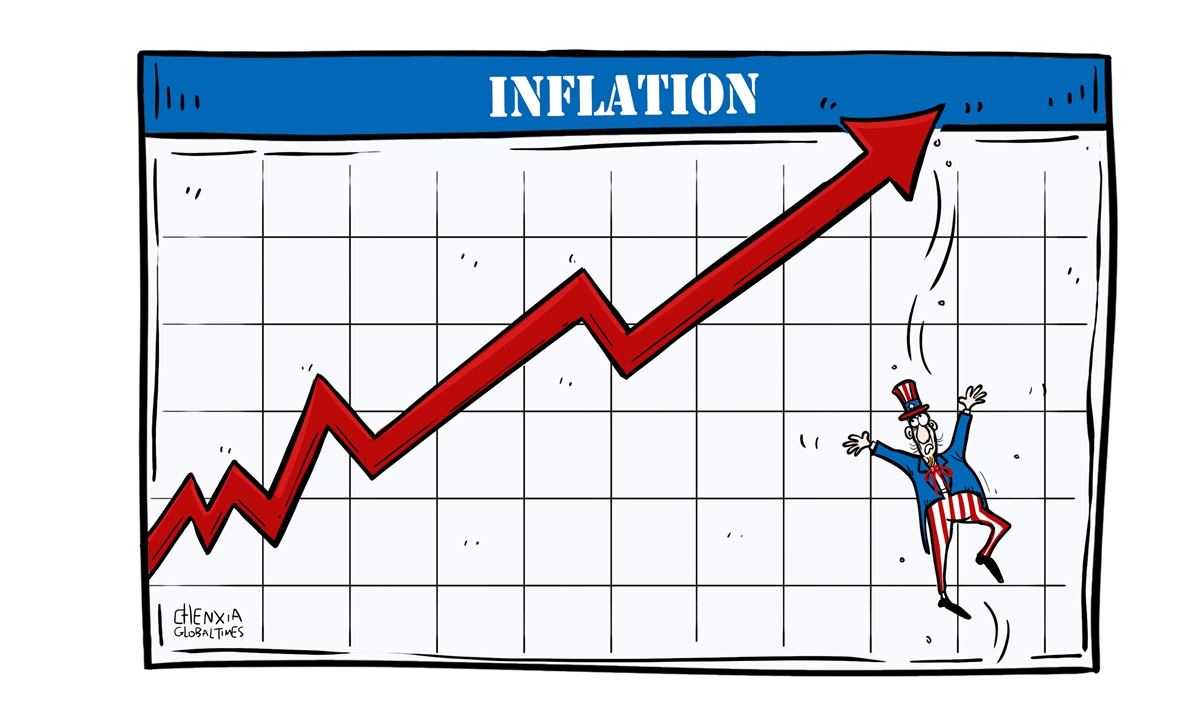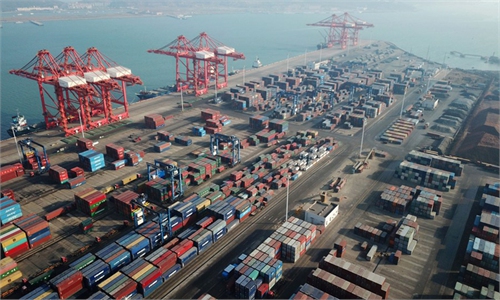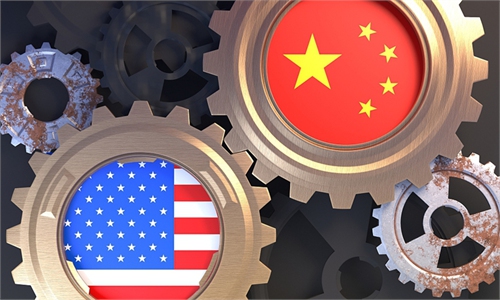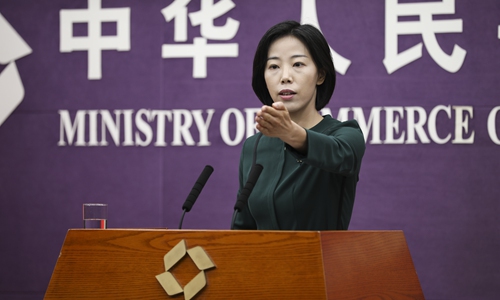
Illustration: Chen Xia/GT
Faced with daunting inflationary pressure, which reached 40-year high of 8.5 percent in March, the Biden administration appears to have no other viable option than paring tariffs on imports from China and other economies.US Treasury Secretary Janet Yellen suggested in a recent interview that the US is open to scaling back US tariffs on Chinese goods so as to help lower US inflation, the Bloomberg reported on Friday. "It's worth considering. We certainly want to do what we can to address inflation, and there would be some desirable effects. It's something we're looking at," she said.
Yellen is not the only senior US government official who has recently suggested lowering tariffs on Chinese imports. On Thursday, Daleep Singh, the White House's deputy national security adviser, also suggested the US could lower tariffs imposed on a host of non-strategic Chinese goods such as bicycles, apparel and other items to help combat surging US inflation.
While their remarks sent a positive signal, it is worth noting that it is not the first time that US government officials suggested to cut tariffs on Chinese imports. For instance, Yellen said more than once in the past months that US' punitive tariffs hurt American consumers and it is worth considering cutting the tariffs. But such calls have only led to renewed tariff exemptions on a limited number of Chinese goods so far.
Therefore, it remains to be seen whether there will be any real loosening of the US tariff policy against Chinese imports.
If anything, the US is increasingly close to a "tipping point" with regard to retaining the tariffs on Chinese imports. It is no secret that the runaway inflation in the US has become a weighted liability for the Biden administration. As the cost for food, fuel and other daily necessities increase, the Democrats are at serious risk of losing to their Republican opponents in the midterm elections in November. If prices stay high, the skyrocketing inflation could effectively upend the Democrats' prospects at the mid-term elections.
The Biden administration is well aware that high inflation in the US has something to do with its punitive tariffs imposed on Chinese imports, and there is an increasing need to remove them, but politically, the administration is unwilling to eliminate the tariffs as they want to appear to be tough on China.
When it comes to trade with China, the Biden administration appears to want to have it both ways - seeking a relief on inflation by removing the duties, and keeping intact the punitive measures that the US hopes to undercut China in key technological sector advances. But that's impossible.
The crux of bilateral trade remains that the US needs China's help to solve its economic problems, but the hawks in Washington want to weaken the competitiveness of the Chinese economy. While the US could move to adjust its tariff policy to suit its own interests, but it has no right to make the Chinese economy unilaterally serve the US interests.
It is important that bilateral trade needs to be mutually beneficial. If the US wants China's inexpensive goods to help alleviate its inflationary pressure, it needs to be more accommodative by removing the restrictions on trade of high-tech parts and components, which are vital for China's supply chains.
Washington needs to stop political posturing and pursue a mutually beneficial and win-win practice for conducting trade by observing the common international rules, not the rules unilaterally defined by Washington.



